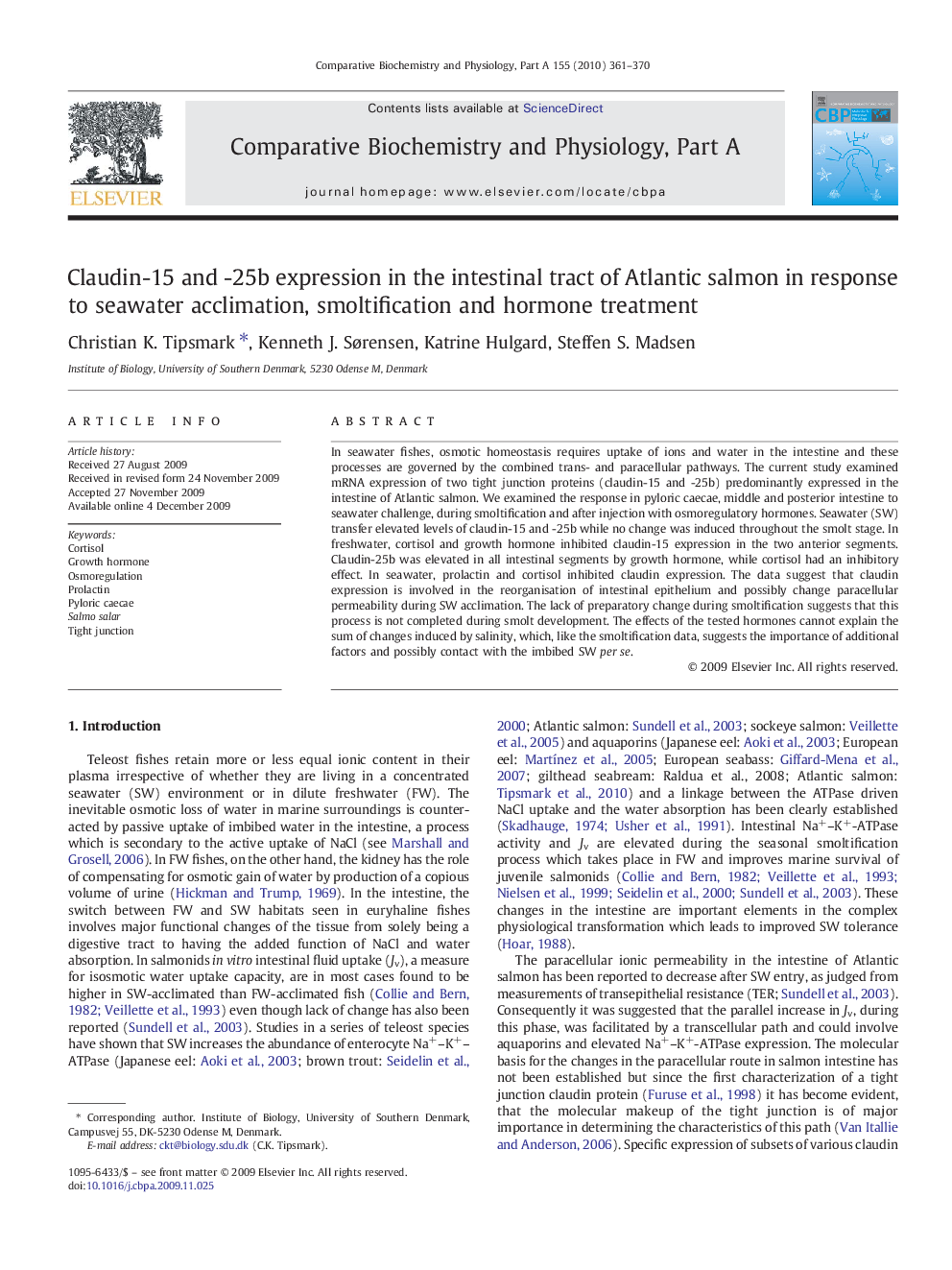| Article ID | Journal | Published Year | Pages | File Type |
|---|---|---|---|---|
| 1973061 | Comparative Biochemistry and Physiology Part A: Molecular & Integrative Physiology | 2010 | 10 Pages |
In seawater fishes, osmotic homeostasis requires uptake of ions and water in the intestine and these processes are governed by the combined trans- and paracellular pathways. The current study examined mRNA expression of two tight junction proteins (claudin-15 and -25b) predominantly expressed in the intestine of Atlantic salmon. We examined the response in pyloric caecae, middle and posterior intestine to seawater challenge, during smoltification and after injection with osmoregulatory hormones. Seawater (SW) transfer elevated levels of claudin-15 and -25b while no change was induced throughout the smolt stage. In freshwater, cortisol and growth hormone inhibited claudin-15 expression in the two anterior segments. Claudin-25b was elevated in all intestinal segments by growth hormone, while cortisol had an inhibitory effect. In seawater, prolactin and cortisol inhibited claudin expression. The data suggest that claudin expression is involved in the reorganisation of intestinal epithelium and possibly change paracellular permeability during SW acclimation. The lack of preparatory change during smoltification suggests that this process is not completed during smolt development. The effects of the tested hormones cannot explain the sum of changes induced by salinity, which, like the smoltification data, suggests the importance of additional factors and possibly contact with the imbibed SW per se.
